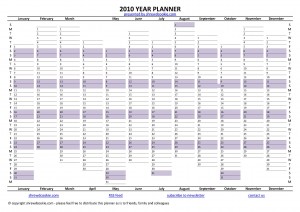At the start of 2009 I made a pact with myself that this year I would make as much effort as possible to change my lifestyle for the benefit of the environment as well as putting more money in my pocket.
Here’s what I have managed to do so far:-
1. Walk to work instead of drive
Since relocating to Bristol about 4 years ago I had been in a position where I was commuting to work, in my car, for 2-3 hours each and every day. It wasn’t a long trip – about 8 miles each way – it was simply a case of the congestion in and around Bristol holding me up.
The benefits to me of moving away from this “daily commute” were several – saved petrol and wear and tear on my car, saving the environment and natural resources, saving me time (my favourite savings by the way!) not sitting in the car for such periods of time as well as the health benefits of moving away from the stress of the daily commute.
In order to make this change I decided to move to a new company closer to home – and am I glad I did – I know have a fantastic 10 minute walk to work through some of the most beautiful streets in Bristol. The car rarely moves off the drive in the week now and I have extra money in the bank each and every month!
2. Give up pre-packed sandwiches and bottled water
Not only are they expensive (how can bottled water, in some instances, be more expensive than petrol?!) I used to buy a sandwich on a daily basis, as well as a bottle of water for work. Not only were these expensive (when compared to the alternatives of drinking tap water and making my own lunch) but stopping buying them also did a little bit for the environment as there is no rubbish (plastic wrappers and bottles) thrown away each day.
3. Taking the Train to Visit Parents
I was surprised when I looked into it that I can get a train from Bristol to my folk’s house, and back, at the weekend for less than the cost of the petrol I would burn to drive there.
OK, it takes a little planning and I have to walk a couple of miles to the stations, but this is one less car on the road, I have three hours of my life back for doing more productive stuff – especially if I am lucky enough to get a seat with a table on the train – and the train is going there anyway so the environmental impact is considerably reduced.
The result is I arrive fresher and less stressed than I used to and I see some fantastic countryside on the way there!
4. Unplug – not standby
Like most people, my TV/DVD player, radio, microwave, etc had all been left on standby for years. I was aware that this was using electricity but not to the extent that in reality it is.
I now turn off at the wall all my electrical items when they are no longer in use.
5. Holiday in the UK this year
Having been abroad most years for the last decade I decided that this year I would not fly abroad and would holiday at home. My goal was to minimise the total cost of the holiday and to this end we went camping! This was a great adventure and bought back a lot of childhood memories.
I’ll admit it takes a bit to get used to having to get out in the middle of the night to go to the toilet in the middle of a field and waking up to a cold tent, with lots of condensation, even in the middle of summer.
But it was more than just a holiday – it was an adventure – money was saved – and a great time was had by all of us – it just proved to us that we don’t need to jet off abroad and spend lots of money in fine restaurants to have a great time. We will certainly be doing it again next year.
6. Use email instead of posting stuff
Another concern I had to address was the amount of paper being wasted in running my investments, bank accounts, pensions, bills etc and the almost daily fall of half a rain forest through my letter box.
I registered with the Mailing Preference Service – which stopped most of the junk mail coming through the letter box in a couple of weeks. I moved all bank accounts to paperless statements – I don’t need paper ones – they have historically been filed away and never looked at again until destroyed after 7 years as I am self-employed.
7. Stopped buying newspapers and magazines.
Whilst having a clear out a few months back I was shocked at the amount of newspapers and magazines I had accumulated. I noticed that these were not cheap with the average magazine costing £3 – £4. The majority of the pages are adverts which I am not interested in anyway.
So I have not bought a newspaper or magazine at all this year – a great savings – I get my news and current affairs fix from the internet and TV now.
And the next 7………….?
I am sure there are many more changes I can make to put more money in my pocket as well as doing my bit for the environment – please let me know by leaving a comment below what hints and tips you would like to share with us.

